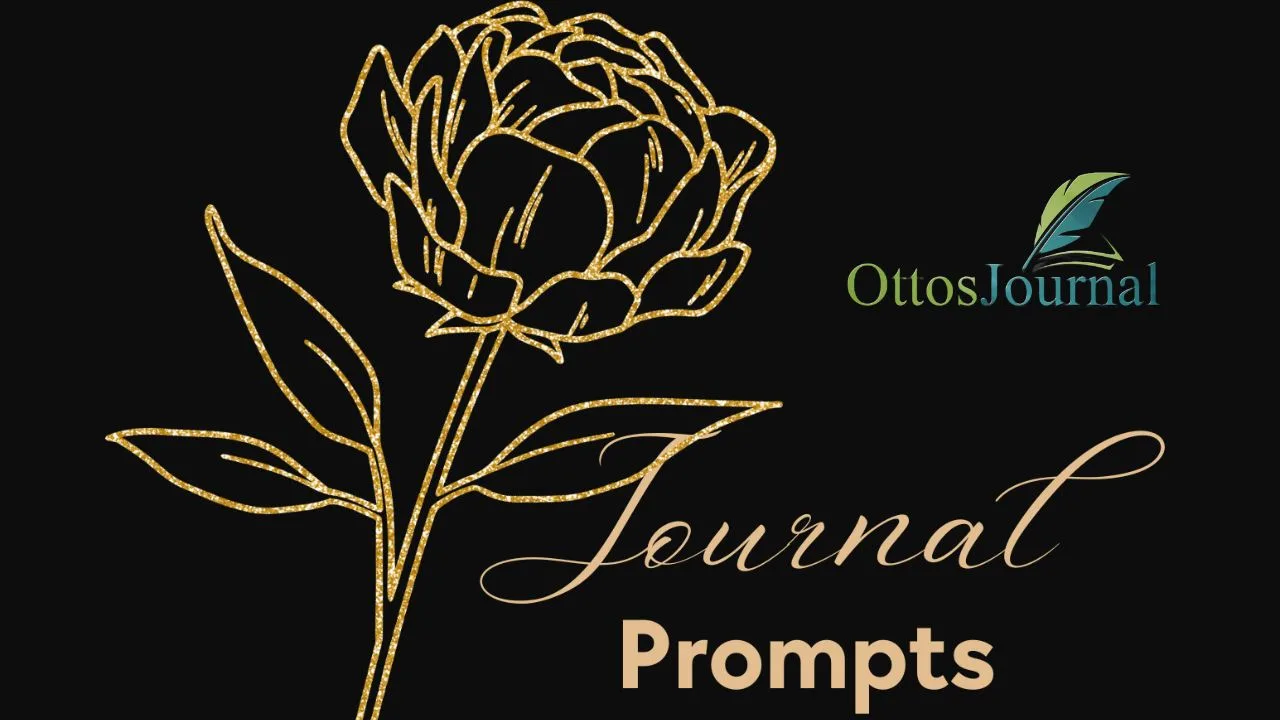Gratitude journaling is a popular practice that involves writing down things that one is grateful for on a regular basis. It is a simple yet effective way to cultivate a positive mindset and increase happiness and joy in one’s life. The practice of gratitude journaling has been shown to have numerous benefits, including improved mental health, increased well-being, and reduced stress levels. If you are interested in starting a gratitude journal, you may be wondering what kinds of things to write about. Fortunately, there are many gratitude journal ideas that can help you get started.
Some people like to write about specific things they are grateful for each day, while others prefer to focus on broader themes such as family, friends, health, or nature. Whatever approach you choose, the key is to focus on the positive aspects of your life and cultivate a sense of gratitude for the good things that you have.
The Science of Gratitude
Gratitude is an emotion that involves feeling thankful and appreciative for the positive aspects of one’s life. It has been studied extensively in the field of positive psychology, which focuses on the factors that contribute to human flourishing.
Benefits of Gratitude
Research has shown that practicing gratitude can have a wide range of benefits for individuals. For example, a study conducted by Robert Emmons and Anjali Mishra found that participants who wrote down things they were grateful for each day reported higher levels of life satisfaction and positive affect compared to those who did not engage in this practice. Other studies have found that practicing gratitude can lead to improved relationships, increased empathy, and better sleep quality.
Gratitude and Mental Health
Gratitude has also been linked to improved mental health outcomes. For example, a study published in the Journal of Personality and Social Psychology found that participants who engaged in a gratitude intervention reported lower levels of depression and anxiety compared to those who did not.
Another study found that practicing gratitude can lead to increased positivity and decreased stress levels. The science of gratitude suggests that incorporating gratitude practices into one’s daily life can have a positive impact on various aspects of well-being, including mental health, positivity, and quality of life.
How to Start a Gratitude Journal
Starting a gratitude journal is a simple yet powerful way to cultivate gratitude, improve mental health, and enhance life satisfaction. Here are a few tips to help you get started:
Choosing Your Journal
The first step in starting a gratitude journal is to choose a journal that you will enjoy using. There are many options available, from simple notebooks to beautifully designed journals with prompts and inspirational quotes. Consider factors such as size, paper quality, binding, and cover design when choosing your journal.
Establishing a Routine
Establishing a routine is essential for making gratitude journaling a habit. Choose a time of day that works best for you, whether it’s in the morning, at night, or during your lunch break. Set aside at least five minutes each day to write in your journal, and try to stick to your routine as much as possible.
To get started, begin by writing down three things you are thankful for each day. These can be small things, such as a warm cup of coffee or a kind word from a friend, or larger things, such as a promotion at work or a new relationship. Over time, you can add more prompts and exercises to your journal to enhance your gratitude practice.
Starting a gratitude journal is a simple yet effective way to cultivate thankfulness, inspiration, and creativity in your life. By choosing a journal that suits your preferences and establishing a routine, you can make gratitude journaling a habit that enhances your mental health and overall well-being.
Gratitude Journal Ideas
Gratitude journaling is a simple yet effective way to enhance positivity and mindfulness. Here are 25 gratitude journal ideas for beginners to get started:
-
- Three things you are grateful for today.
- A person who positively impacted your day and why.
- A challenge or setback you overcame and the lessons learned.
- A specific moment that brought you joy or peace.
- Something in nature that you appreciate.
- A skill or ability you are thankful for having.
- A past experience that shaped your character.
- A small pleasure you often overlook.
- A favorite memory from your childhood or recent past.
- A kind gesture you received or witnessed.
- A personal strength or quality you value in yourself.
- A book, movie, or piece of art that moved you.
- A delicious meal or food item you enjoyed.
- A supportive or inspiring quote or message you encountered.
- A future opportunity or event you are looking forward to.
- A hobby or interest that brings you fulfillment.
- A moment of laughter or humor that brightened your day.
- A mentor or role model who has positively influenced you.
- A place or environment where you feel at peace.
- A modern convenience or technology that improves your life.
- A lesson learned from a difficult experience.
- A compliment or positive feedback you received.
- A personal achievement, no matter how small.
- A cherished possession with sentimental value.
- A moment of silence or solitude that provided clarity.
Daily Gratitude Practices
Gratitude journals are a powerful tool to help individuals cultivate a positive and optimistic mindset. Daily gratitude practices can help individuals focus on the good things in life and appreciate the small moments that often go unnoticed. Here are a few daily gratitude practices that can help individuals cultivate a sense of gratitude in their daily lives.
Reflecting on Relationships
One of the most important aspects of life is the relationships that individuals have with their friends, family, and partners. Reflecting on these relationships and expressing gratitude for the people in one’s life can help individuals feel more connected and appreciative of the people around them. Individuals can take a few minutes each day to reflect on the people in their lives and express gratitude for the positive impact they have had.
Appreciating the Small Things
Often, individuals can get caught up in the hustle and bustle of daily life and forget to appreciate the small things. Taking a few moments each day to appreciate the small moments can help individuals cultivate a sense of gratitude and appreciation for the world around them. This can include things like enjoying a cup of coffee in the morning, taking a walk outside, or simply taking a few deep breaths.
Turning Obstacles into Opportunities
Obstacles and challenges are a natural part of life, but they can also be opportunities for growth and learning. Taking a few moments each day to reflect on the obstacles and challenges that one has faced and expressing gratitude for the opportunity to learn and grow can help individuals develop a more positive and resilient mindset.
By incorporating these daily gratitude practices into their lives, individuals can cultivate a sense of gratitude and appreciation for the world around them. These practices can help individuals focus on the good things in life and develop a more positive and optimistic mindset.
Enhancing Well-being Through Gratitude
Gratitude journaling has been shown to have numerous benefits, not just for mental health but also for physical well-being. Here are some ways in which gratitude can enhance overall well-being:
Gratitude and Physical Health
Research has shown that gratitude can have a positive impact on physical health. A study published in the Journal of Personality and Social Psychology found that people who practiced gratitude had fewer aches and pains and were more likely to take care of their health.Gratitude can help lower blood pressure and improve heart health.
Improving Sleep with Gratitude
Gratitude journaling can also improve sleep quality. A study published in Applied Psychology: Health and Well-Being found that participants who wrote in a gratitude journal for 15 minutes before bed fell asleep faster and slept longer than those who didn’t. This may be because gratitude helps reduce stress and anxiety, which can interfere with sleep.
Cultivating Inner Peace
Gratitude can also help cultivate inner peace and improve overall well-being. When people focus on what they are grateful for, they tend to feel more positive emotions and less negative ones. This can lead to a greater sense of contentment and happiness. Gratitude can help people feel more connected to others and to the world around them, which can further enhance well-being.
Incorporating gratitude journaling into one’s self-care routine can have numerous benefits for both mental and physical health. Whether it’s through mindfulness exercises, exercise, food, or environmental changes, finding ways to cultivate gratitude can be a powerful tool for improving overall well-being.
Creative Expressions of Gratitude
Gratitude journaling doesn’t have to be limited to just writing down a list of things you’re grateful for. There are many creative ways to express gratitude that can make the process more enjoyable and engaging. Here are a few ideas to get started:
Gratitude Bullet Journal
For those who enjoy being creative and artistic, a gratitude bullet journal might be the perfect way to express gratitude. Bullet journals are a popular way to organize and track daily tasks and events, but they can also be used to incorporate gratitude into your daily routine. By creating a gratitude spread in your bullet journal, you can include prompts, quotes, and other creative elements that help you focus on the positive aspects of your life.
Gratitude Jar and Exercises
Another creative way to express gratitude is through a gratitude jar. This involves writing down things you’re grateful for on small pieces of paper and placing them in a jar. Over time, the jar fills up with reminders of all the good things in your life. You can also incorporate gratitude exercises into your daily routine, such as taking a few minutes each morning to reflect on what you’re grateful for or expressing gratitude before meals.
Sharing Gratitude with Others
Expressing gratitude doesn’t have to be a solitary activity. Sharing gratitude with others can be a powerful way to strengthen relationships and spread positivity. Whether it’s thanking a friend or co-worker for their help, expressing gratitude to a family member, or performing acts of kindness for strangers, there are many ways to share gratitude with others. Not only does this benefit those around you, but it can also increase your own energy and sense of well-being.
Incorporating creative expressions of gratitude into your daily routine can help you cultivate a more positive outlook and improve your overall well-being. Whether you choose to start a gratitude bullet journal, use a gratitude jar, or share gratitude with others, there are many ways to make gratitude a regular part of your life.
Overcoming Challenges with Gratitude
Gratitude journaling can be a powerful tool for overcoming challenges and building resilience. By focusing on the positive aspects of life, individuals can reframe their thinking and cultivate a more positive outlook. Below are some examples of how gratitude journaling can help individuals overcome challenges in their lives.
Dealing with Anxiety and Depression
Anxiety and depression are two common mental health challenges that can be difficult to manage. Gratitude journaling can help individuals reframe their thinking and focus on the positive aspects of their lives. By writing down things they are grateful for, individuals can shift their focus away from their negative thoughts and feelings and cultivate a more positive outlook.
Building Confidence and Optimism
Gratitude journaling can also help individuals build confidence and optimism. By focusing on the positive aspects of their lives, individuals can cultivate a more positive self-image and build their self-esteem. This can lead to increased confidence and a more optimistic outlook on life.
Finding Inspiration in Everyday Life
Gratitude journaling can also help individuals find inspiration in everyday life. By focusing on the positive aspects of their lives, individuals can cultivate a sense of gratitude and appreciation for the world around them. This can lead to increased positivity, energy, and creativity, and can help individuals find inspiration in even the most mundane aspects of their lives.
Gratitude journaling can be a powerful tool for overcoming challenges and building resilience. By focusing on the positive aspects of life, individuals can reframe their thinking and cultivate a more positive outlook. Whether dealing with anxiety and depression, building confidence and optimism, or finding inspiration in everyday life, gratitude journaling can help individuals overcome challenges and cultivate a more positive and fulfilling life.
Frequently Asked Questions
What are the benefits of maintaining a gratitude journal?
Maintaining a gratitude journal can have several benefits for your mental and emotional well-being. It can help you develop a more positive outlook on life, increase your self-awareness, and improve your relationships with others. Writing down what you are grateful for can also help you cope with stress and anxiety, and improve your overall mood.
How can I incorporate gratitude prompts into my daily work routine?
One effective way to incorporate gratitude prompts into your daily work routine is to set aside a few minutes each day to reflect on what you are grateful for. You can write down your thoughts in a gratitude journal or simply take a few moments to think about what you appreciate in your life. Another option is to start each workday by expressing gratitude to a colleague or coworker.
Can you suggest some gratitude journal prompts for adults seeking personal growth?
Some gratitude journal prompts for adults seeking personal growth include:
- What is something you learned today that you are grateful for?
- What is a challenge you faced today, and how did you overcome it?
- What is a quality you admire in yourself, and how can you cultivate it further?
- What is a quality you admire in someone else, and how can you emulate it in your own life?
What are some gratitude prompts tailored for middle school students?
Some gratitude prompts tailored for middle school students include:
- What is something you appreciate about your family?
- What is a talent you have that you are grateful for?
- What is something you learned in school today that you are thankful for?
- What is a kind thing someone did for you today, and how did it make you feel?
How do I begin a gratitude journal and what are the key steps involved?
To begin a gratitude journal, start by finding a notebook or journal that you enjoy writing in. Then, set aside a few minutes each day to write down what you are grateful for. Some key steps involved in maintaining a gratitude journal include being consistent, focusing on the positive, and being specific in your entries.
Where can I find a comprehensive list of prompts for a year-long gratitude journal?
You can find a comprehensive list of prompts for a year-long gratitude journal online or in books about gratitude journaling. Some websites and blogs also offer free printable gratitude journal prompts that you can use as inspiration for your own journal entries.



